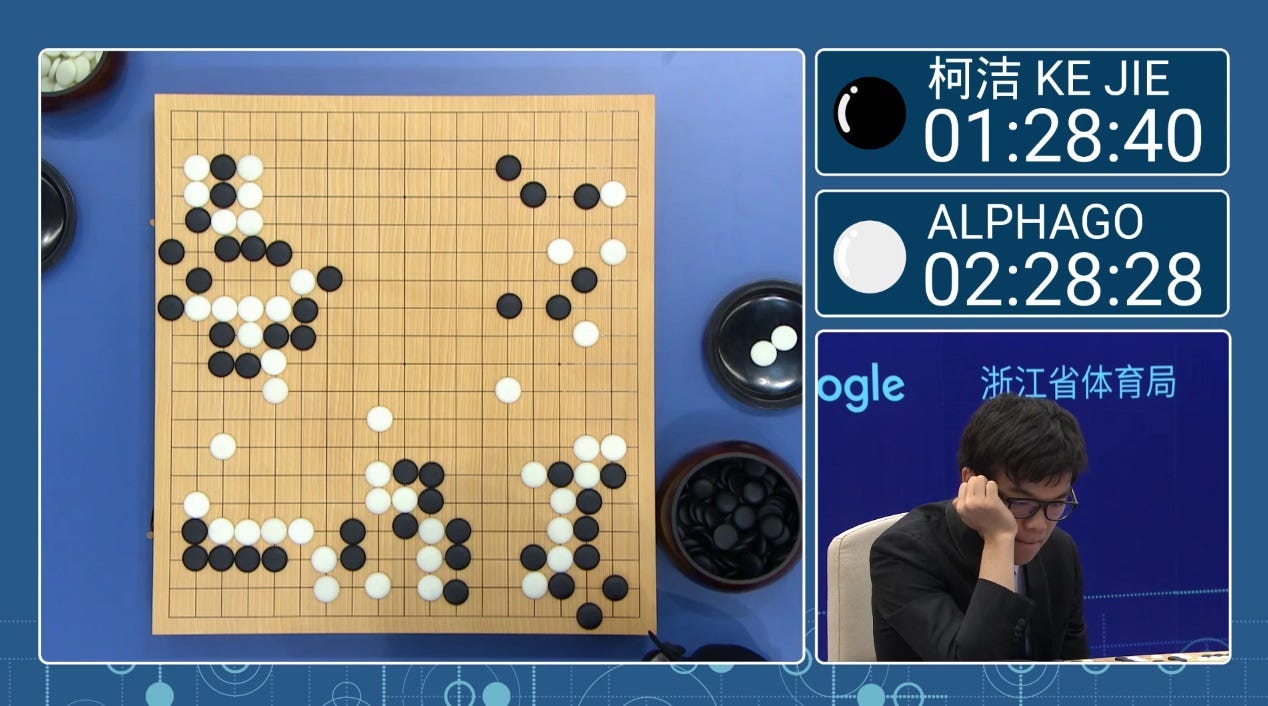How Google kickstarted Chinese AI
By ignoring Chinese history & culture, America is now on the backfoot in this technology of the future
Dear all
You’ve probably noticed how I keep mentioning how important it is to understand China’s history if you want to understand it’s present, and in today’s post I’m going to give a West-worrying example of how this is so.
In the piece I did on the Warring States period (475 BC - 221 BC) a few weeks ago, I described how it was an axial time in the country’s history, cementing much of what it means to be Chinese today.
One aspect in particular was the interplay between diplomacy and war, learnt as the seven states struggled to become the ba, or hegemon. Most observers would agree that the style of this interplay remains the underlying approach to Chinese foreign relations even now.
Perhaps incongruously, this even includes its attitude to Artificial Intelligence (AI) development. When an American company decided to show off its technological mastery of China’s most famous board-game, Go, it set off a chain reaction that is likely to redefine the future of AI.
***
First played slightly before the Warring States period in around the sixth century BC, Go is at once the oldest continually played game in the world, and one of its most complex. Players start with an empty board and a supply of either black or white stones, and the main object of the game is to use the stones to form territories by surrounding vacant areas of the board.
It sounds simple, but what makes it so challenging is the sheer number of options that the players can take. After the first two moves of a chess game, there are 400 possible next moves. In Go, there are close to 130,000 – and that’s just the start. After just 40 turns, the number of potential variations already exceeds the number of atoms in the universe.
Such is the complexity of the game, that engineers at Google thought it would be the perfect way to show off their latest abilities in artificial intelligence. If Google’s algorithm, AlpahGo, could beat a human at the game then it would be a highly visual way of proving the company’s incredible abilities in this key technology of the future. Not only that, but it would put one in the eye of the country that is America’s closest rival in terms of AI ability.

In 2017 Google duly challenged the world Go champion, a geeky Chinese 19-year-old called Ke Jie, to a three-match competition.
AlphaGo, which was developed by Google’s UK-based AI subsidiary DeepMind, destroyed the world champion. Ke afterwards said that his artificial competitor was “like a god of Go” in its ability.
In retrospect Google - and America - might have regretted the algorithm beating a Chinese man at Go. The computer’s victory set off a chain reaction that threatens to end America’s domination in AI.
Go’s Chinese name, wei qi, is literally translated as “encirclement board”, and to win you must entice your opponent by opening up new positions while deceptively encircling him, hoping he won’t notice your true intentions. It reflects a deep-seated fear in China, that of being encircled and crushed, which was a tactic used to bloody effect many times in the country’s history. In the 260 BC Battle of Changping, for example, the leader of the Qin state’s armies captured 450,000 soldiers from Zhao because of a perfectly executed encirclement. The surrendered troops, all half million of them, were then buried alive, permanently destroying the viability of the Zhao state.
Go, therefore, was the wrong game for the Americans to pick when showing off their capabilities in AI. A victory would signal to the Chinese that they were in danger of being encircled by this new technology - and that is exactly what happened. “For Chinese military strategists, among the lessons learned from AlphaGo’s victories was the fact that an AI could create tactics and stratagems superior to those of a human player in a game that can be compared to a war-game,” wrote Elsa Kania, an expert on Chinese military innovation.

There was now a stark realisation of the need to catch up and beat the Americans in AI. It was in many way’s China’s Sputnik moment, referring to the shock felt in the American establishment when the USSR beat their Cold War rivals into launching space’s first manmade object.
In exactly the same way that Washington sprang into action in the months after it saw Moscow’s metallic beachball hurtling around the planet, AlphaGo’s victory launched a flurry of AI activity in Beijing.
Not long after Ke Jie’s loss, China released a hastily-crafted initiative known as the New Generation Artificial Intelligence Development Plan with the aim of pushing the country to the forefront in the technology. The journal Scientific American claims that the plan has already spurred myriad policies and billions of dollars of investment in research and development from a mix of private and public sources.
By comparison, President Obama’s 2016 Report on the Future of Artificial Intelligence met with barely a whimper, and led to no recognisable change to national AI output. President Trump went one stage further down the competitive scale by actually cutting investment in AI research, even as China used Obama’s plan as the basis of its own.
There are hopes that the Biden Administration will take America’s AI development more seriously than the last, but it won’t be easy. As we will explore in an upcoming post, China’s AI abilities may still be second to America’s, but they are catching up very fast – and thanks in part to Google, and a lack of understanding about Chinese history and culture.


